
22 minute read
NEWS
German supermarket chain, Kaufland, arrives in Australia O ne of the world’s largest retailers, Kaufland, has broken ground to commence construction of its first South Australian supermarket in Prospect, the company’s first outside of Europe. It is one of three stores it will be building in Australia, with more to come.
The multi-million-dollar development, on a 24,000sqm vacant site, will feature a Kaufland supermarket, food hall, outside dining area and support tenancies.
The company has also secured planning approval for another Adelaide store on the former Le Cornu site on Anzac Highway at Forestville and has another development application currently being assessed.
Premier Steven Marshall said it was an exciting time for the state to have a company of Kaufland’s international standing build one of its first two Australian stores in Adelaide.
“Not only will this project create an estimated 150 construction jobs and up to another 100 retail jobs upon completion, it will offer South Australian consumers more choice,” said Marshall.
“Developments like this from major international companies show the confidence in the South Australian economy, reinforcing that we are heading in the right direction.
“Kaufland’s expansion into South Australia presents significant opportunities for the state’s food producers, as the company has publicly stated its desire to stock local products on its shelves, which is fantastic news.
“We look forward to working with the company as they look to expand into further sites across Adelaide and the state.”
Minister for Trade, Tourism and Investment, David Ridgway, said construction of Kaufland’s Prospect store and the subsequent projects in Forestville and across Adelaide will provide a number of important contract opportunities for local construction companies.
“The company has already employed a local property development and construction management team in preparation for Kaufland’s expansion, which is a further indication of Kaufland’s strong commitment to South Australia and the local economy,’’ Ridgway said.
“To have a global brand like Kaufland invest in property is a great reflection of South Australia’s global standing, and I’m confident this partnership will generate further trade advantages in the future particularly with Europe where Kaufland has almost 1,300 stores across the continent.”
Kaufland Australia’s managing director, Julia Kern, said it is committed to investing in South Australia for the long term, and its celebration at Prospect is a tremendous and exciting milestone for Kaufland Australia. The Prospect store will initially operate as a testing facility to train staff, practise processes and trial proposed concepts. Construction of the Prospect store is due to be completed in late 2020.
Will Kaufland become the fourth big player in the Australian supermarket space?
01 QUALITY YOU CAN DEPEND ON
Our CO 2 manufacturing facilities are certified FSSC 22000 and follow the HACCP methodology to guarantee quality and safety of our products.
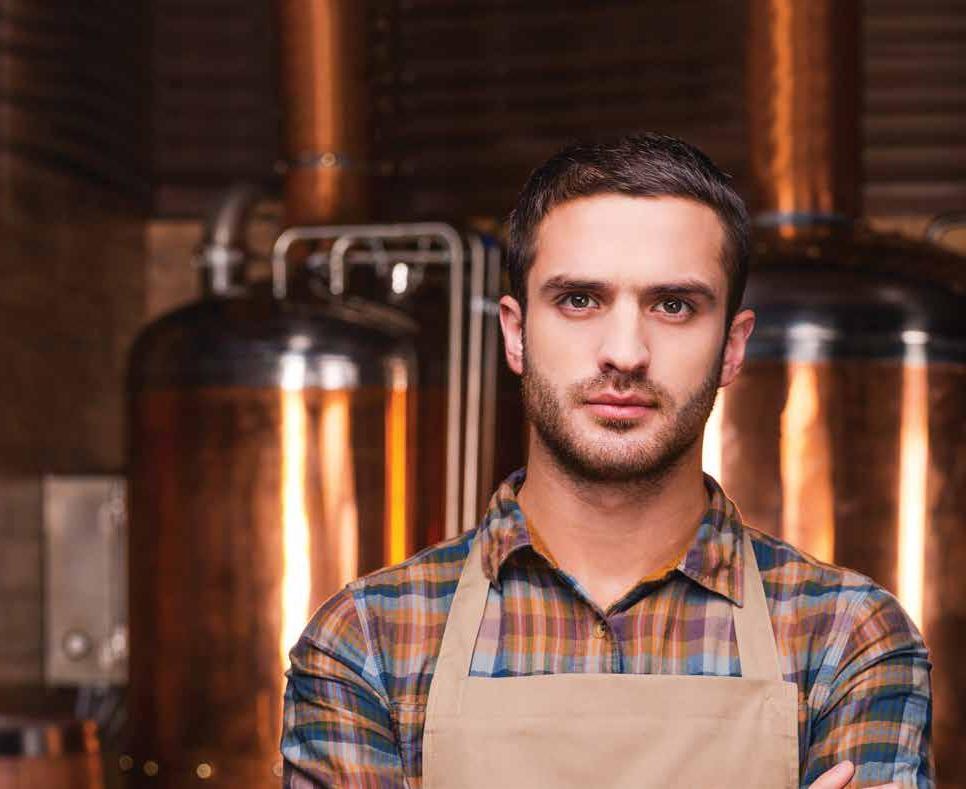
02 EXPERTS AT YOUR SERVICE
Air Liquide improves and invents new applications and equipment for the beverage industry to tackle emerging challenges in food safety and quality.
03 FLEXIBLE SUPPLY
Whether you operate a large beverage manufacturing facility or a small craft brewery, Air Liquide can propose cost effective solutions adapted to your needs.
Growth in premium livestock feeds spurs by-product demand
Livestock feed company, Castlegate James Australasia, is seeking to purchase greater volumes of byproducts from food manufacturers, and establish new suppliers, due to strong growth in demand for its high-performance products.
The company has been working alongside the Australian food industry since 1923, buying growth potential for re-purposing or upcycling food industry “by-product” into high-performance livestock feed is both on-trend and exponential.
Importantly, demand for improved on-farm performance, animal welfare and feed reliability are driving interest in, and sales of, the company’s unique product offer on both sides of the Tasman.
“Each year across Australia and purchased for the company’s unique feed rations include packaged bread, biscuits, dough, yeast, vegetables and fruits, brewers’ grains, food grains and nuts, flour, dairy powders and even confectionery. These ingredients are then formulated by the company to make a unique balanced ration depending on the livestock application and farm productivity goal.
Castlegate James is looking for new suppliers to help with increasing stock for its feed business.
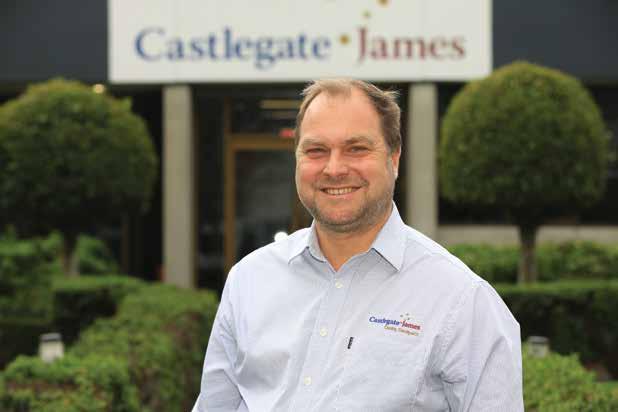
by-products from large FMCG food and beverage companies and converting these organic ingredients into highly sought-after premium livestock feeds.
The company supports many of Australia and New Zealand’s most respected food industry suppliers and large-scale livestock producers, converting what some may see as surplus into nutritionally balanced, performance-based feeds for the dairy, cattle and sheep markets.
Castlegate James Australasia’s Group CEO, Steven Chaur, is a 30-year veteran of the Australian consumer food industry and said the New Zealand, we will convert over 700,000 tonnes of consumer food by-product into quality livestock feeds that would otherwise not be consumed,” said Chaur. “The ingredients include high-quality materials generated as part of a food production process such as production line trimmings or grade-outs, out of specification, over production or unused raw materials. It’s all perfectly good quality and safe but it can’t be used for consumer product and there is increasing pressure on food companies not to add to landfill.”
Many of the ingredients
“Our nutritionally balanced feed is produced from high-quality, consumer-grade food product inputs and because it’s been already fully or partially processed, the ingredient digestibility and calorific value tends to be superior for livestock, relative to a conventional grains based stockfeed, delivering better energy, protein and fibre in a way that increases weight gain, marbling scores or improved milk production. It’s a joy to see livestock chasing the feed wagon. Even cattle like confectionery, in moderation, or the sweet smell of brewers grain.”
Castlegate James operates 10 high-volume production facilities across Australia and New Zealand, servicing both suppliers and customers through fast lead times and unique processes that can efficiently de-package retail-ready or bulk-packaged foods. The company is planning production investment in both Australia and New Zealand over the coming three years to meet increasing livestock customer demand, as well as pursing innovative new high-value markets.
“Because a large amount of the by-product that we purchase is branded perishable food, our production sites tend to be state based close to both the customer and supplier,” said Chaur. “This ensures we can handle significant volumes reliably and operate a fast turnaround to ensure the best quality feed is delivered to our large-scale farm customers, who demand reliability and consistency. Critically, we ensure our suppliers can operate efficiently by providing a professionally managed and timely on-site collection service, as well as confidentiality in dealing with branded packaging materials.”
Demand is growing rapidly for the company as it continues to explore new sources of by-product supply from food manufacturers, food retailers and QSR franchise operators.
“Importantly, we are not a site services company so we don’t manage general waste. We are every bit a premium food manufacturing company, we just feed livestock instead of consumers. We pay a premium for the consumer foodgrade ingredients used in our livestock feeds and so we have high expectations on suppliers for reliable supply and quality. In turn, we provide a consistent commercial service to our ingredient suppliers. It is a win-win relationship and we’re delighted to play a key role in helping to make a unique contribution to food industry sustainability and support an important livestock value chain,” Chaur said.
A bank that gets your business? Yes, chef!
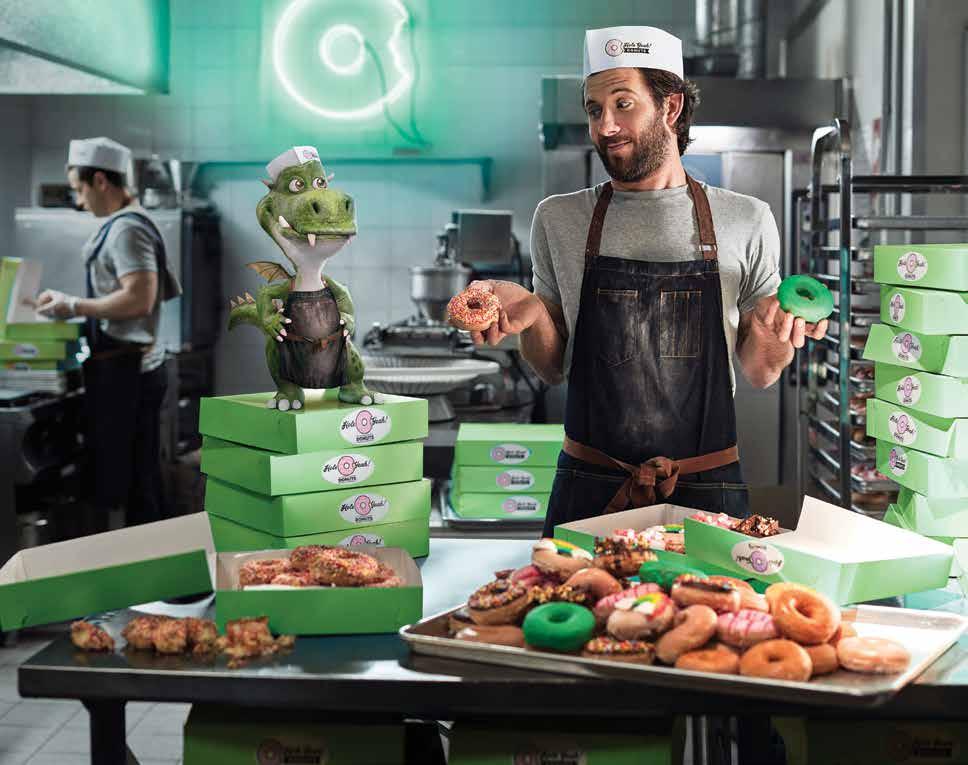
From producing fresh, perishable or shelf-life products to sourcing and selling your goods domestically or internationally, our team of food and beverage specialists understand the hard work that goes into making your business a roaring success. If you’re ready to fire up your business, talk to us today.
Contact a Food & Beverage Relationship Director:
Sydney CBD - Mark Burgess 0404 832 035 mark.burgess@stgeorge.com.au
Western Sydney - Maria Savvas
0466 630 622 maria.savvas@stgeorge.com.au
David Jones expands into food convenience with BP
David Jones and BP have announced a partnership to create all-new centres of convenience and shape the way Australian consumers shop for food.
The partnership combines David Jones Food’s exclusive, high-quality product range with BP’s global expertise in convenience retailing and national footprint, giving customers access to locally sourced, ready-made meals and other fresh, quality offers at selected BP sites throughout the country.
Over the next six months, 10 sites strategically positioned around major arterials and key suburban regions of Melbourne and Sydney, will be transformed to showcase the new offer that has been designed with busy, urban, health-conscious customers in mind.
The new range will see more than 350 products on offer, including “food-for-now” and “food-for-later “options, as well as a diverse range of fresh items such as sandwiches, sushi and David Jones Food’s freerange rotisserie chicken. They will also be adding pre-prepared meals and long-life groceries to the list of available products.
UberEats rival arrives in Australia
DoorDash, the largest ondemand food platform for door-to-door delivery in the US, announced its official launch in Australia, beginning with Melbourne. This marks the company’s first market expansion beyond North America.
Australia’s “foodie capital” will be the first to experience what DoorDash will bring to the food market. Thousands of restaurants will be available for delivery through DoorDash – in addition to hundreds for pick up – across the CBD and inner suburbs, with plans to expand to the outer suburbs in the coming weeks.
DoorDash’s launch taps into Melbourne’s love of food and food delivery apps. At launch, customers can order from well-known brands such as Nando’s, Betty’s Burgers and Salsa’s Fresh Mex Grill, as well as local independent restaurants including misschu, Bay City Burrito and exclusive partners Cedar Bakery and Il Gusto.
Melbourne isn’t alone in its enthusiasm for on-demand access to food from favourite local restaurants, with the rest of the country continuing to embrace the ease and convenience of food delivery. In fact, almost two million Australians aged 14+ (9.8 per cent) use meal delivery services in an average three-month period.
“We are excited Australia is our first international expansion outside of North America,” said DoorDash general manager, Australia, Thomas Stephens.
DoorDash has arrived on Australian shores to take on the likes of UberEats and Deliveroo.
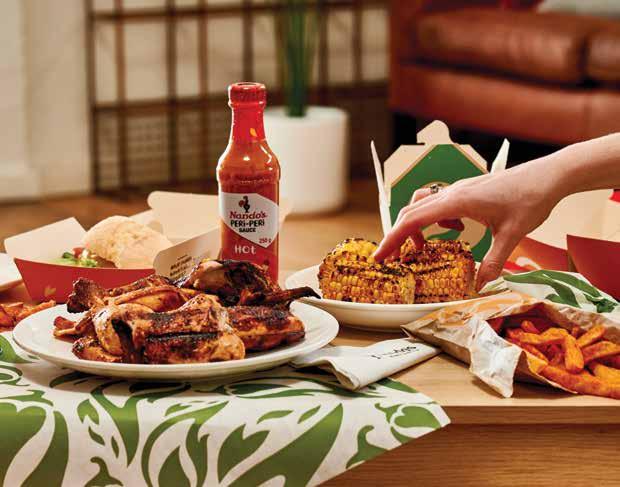
“We dove deep into the Australian market and quickly realised two things; restaurants want more from their delivery partners, and not all Melburnians have access to the selection that they should expect.
“We’ve built a lot of product and expertise to solve these problems in North America. Combining that experience with a tailored approach just for Melbourne, we’re excited to grow the market here. We’ve built a service for Australian eating habits with a simple focus: provide more access to Melburnian’s favourite foods,” Stephens said.
Along with a wide selection of Melbourne’s finest eateries, DoorDash offers a delivery and pick-up function allowing users to collect their meals on the go in addition to group ordering for big groups.
“Working collaboratively with restaurant owners of all business sizes, customers and Dashers, our priority is accessibility to a delightful food delivery experience for all. From Melbourne, we aim to continue our expansion efforts throughout Victoria and Australia through the remainder of 2019 and into 2020,” Stephens added.
Steel belts and forming systems for chocolate and confectionery

IPCO is a world leader in the manufacture and supply of solid/perforated steel belts and associated process systems for the food industry, with application-specific expertise that extends across cooling, forming, pastillation, baking, conditioning, casting, conveying and more.
Our belts and systems are used across the chocolate industry for forming industrial (chunks, chips, blocks) and decorative (rolls, shavings, blossoms etc.) products and our Rotoform rotary depositing system is at the heart of production systems worldwide.
Applications are even more extensive in the world of confectionery processing, with IPCO belts and systems used for everything from caramel, choux pastry and hard melt candy to gummy candies, nougat and meringue. Our belts are also widely used for handling abrasive products such as cocoa and sugar.
• Worldleadingsteelbelttechnology:solid/perforated,carbon/stainless, wide belts, choice of grades. • ProcesssolutionsincludingourprovenRotoformFDpastillationsystem. • Chocolateformingsystemsforproducersofallsizes. • Globalserviceandsparepartssupport,newinstallations,upgrades, planned maintenance, belt replacements.
Improving oversight of live animal exports
The appointment of an inspector-general of Live Animal Exports is designed to improve regulator performance.
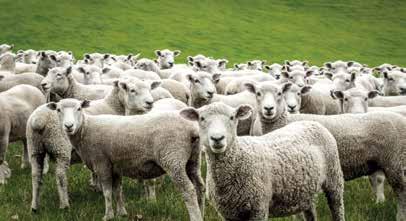
An independent inspectorgeneral of Live Animal Exports to oversee regulation of the industry is a step closer with a bill to establish the position as a statutory appointment passing the Senate.
Agriculture Minister, Bridget McKenzie said the community deserved greater assurance that animal welfare outcomes for export livestock were being met and monitored.
She said that Australia’s livestock export industry is an important contributor to Australia’s rural and regional communities and to the national economy valued at $1.7 billion and supporting thousands of jobs.
“It’s a legitimate trade, however, it won’t be conducted at the expense of animal welfare standards. “This legislation is proof of this government’s continued commitment to improving the trade – making sure the trade is well regulated and above board.
“Support for the inspectorgeneral of Live Animal Exports Bill 2019 means there will be an entrenched independent check on the Department of Agriculture’s application of the regulations and its exercise of power.
“Our livestock export system is already world class and the inspector-general will only enhance that. I am confident that the Bill will pass the House of Representatives and become law.
“Once it does, I will appoint a suitably qualified person to make sure the system is operating as it should – driving positive change in the industry, improving regulator performance and providing greater confidence to the general community about livestock exports.”
First pea genome to help improve crops of the future
Aglobal team including scientists from The University of Western Australia has assembled the first genome of the field pea, which provides insight into how the legume evolved and will help aid future improvements of the crop.
The study, published recently in Nature Genetics, has important implications for global nutrition and the sustainability of crops, with field peas providing an important plantbased protein source for human food and animal feed.
Professors David Edwards and Jacqueline Batley from UWA’s School of Biological Sciences and UWA’s Institute of Agriculture were co-investigators in the research and said that the field pea had a much larger and more complex genome compared to other legumes.
“The pea genome assembly spans about 4.45 thousand million letters,” Edwards said. “But it’s only with relatively recent technological innovations that we’ve been able to sequence and assemble such large genomes.”
Batley said the research built on pioneering concepts of inheritance developed by Gregor Mendel, a 19th century monk.
“With the pea genome sequenced, we can now start to understand the basis for the variation which has evolved,” Batley said.
“Mendel analysed the inheritance of different pea traits such as wrinkled peas, and he demonstrated that these traits were passed on from one generation to the next, a foundation for Darwin’s later discoveries in evolution.
“More than 150 years later, we’ve now assembled the pea genome, which means we can start to understand the DNA basis of the inheritance observed by Mendel.”
This research was supported by the Australian Grains Research and Development Corporation and by the Australian Research Council.

Global Table Conference: Smarter agriculture needed to feed growing population
The former US secretary of state, John Kerry, warned that feeding a rapidly growing world population would be one of the greatest
Former US presidential candidate, John Kerry.
challenges of climate change.
The amount of food wasted was not sustainable with the impact of climate change and the world’s population set to rise from 7 billion to 9 billion in the next 35 years, said Kerry, in his opening keynote address at the Global Table conference at Melbourne Showgrounds held in September.
The three-day food innovation and agribusiness summit brought together global industry leaders and innovators from the Asia-Pacific, America, Europe and the Middle East, to discuss the future of food.
While a third of all food went to waste in wealthy countries, nearly half of the 8,000 child deaths each day globally were caused by lack of food, said Kerry, who succeeded Hillary Clinton as secretary of state for the last four years of the Obama administration.
“Right now, today, every one in nine people wakes up in the morning with hunger pains and they go to bed with an empty stomach,” Kerry said. “We have to increase food production by 60 per cent between now and 2050 just to keep pace.”
Growing more food was only part of the challenge, said the former Democrat Party presidential nominee.
“We have to become better stewards of the land. The truth is we are not smart enough that way,” Kerry said. He also called for improvements to food storage, transport and distribution.
Switching to renewable energy sources was an urgent priority to address climate change, Kerry said.
“Anybody who persists in putting before people the notion that you have to make a choice: you either get to have jobs and prosperity or you can protect the environment and the future, that’s a lie,” he said.
Reducing emissions and choosing renewable energy remained the best solution to combat climate change.
“The solution to climate change is staring us in the face. It’s not some pie-in-the-sky thing. Basically it’s called energy policy.
“That’s the solution to climate change: energy policy.
“The choices of how we produce electricity, how we transport ourselves from place to place, how we do industry without polluting,” said Kerry.
Oxygen Analysers, Relative Humidity Sensors and Meters, Dewpoint Measurement U.V Absorption Conductivity pH / ORP Colour
AMS Instrumentation & Calibration Pty Ltd Analytical Process Division
Head Office: Unit 20, 51 Kalman Drv
Boronia VIC 3155
Ph: 03 9017 8225 Fax: 03 9729 9604
NSW Ph: 02 8197 2825 WA Ph: 08 6364 0205 QLD Ph: 07 3333 2825 SA Ph: 03 9017 8225
www.ams-ic.com.au sales@ams-ic.com.au
Oxygen Analysers, Thermal Conductivity Analysers, NDIR Analysers, Multigas Analysers, OEM Analysers
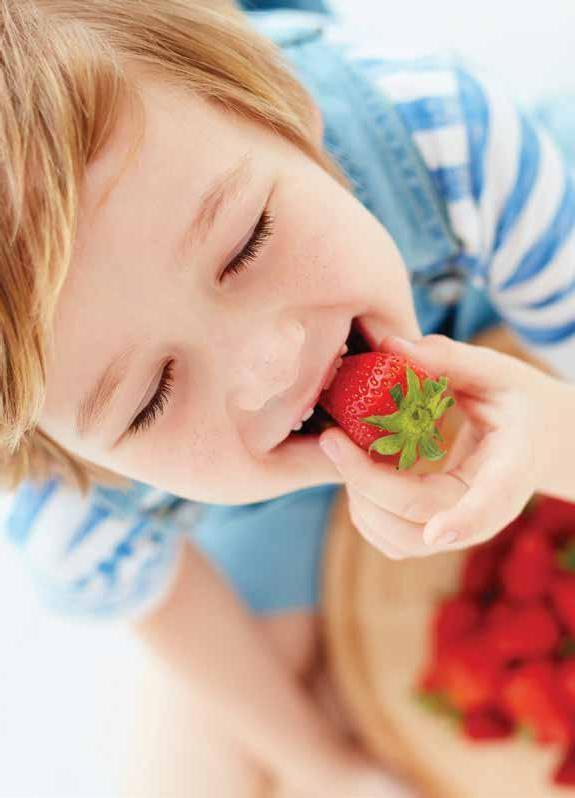
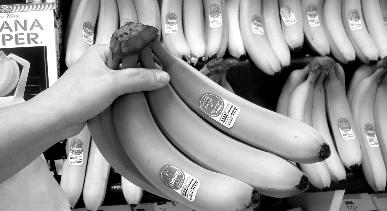
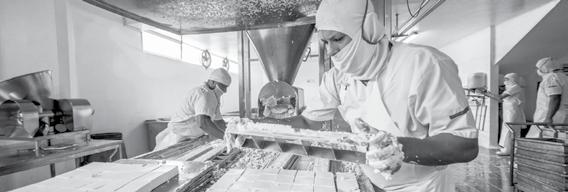


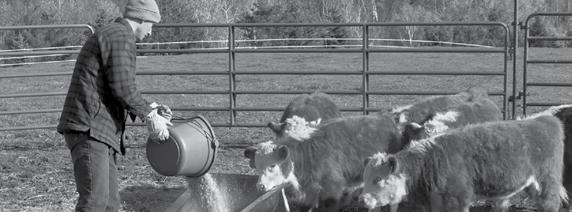
FFH new manufacturing plant starts production F ine Food Holdings (FFH), a division of the Gourmet Food Group, has commenced operation from its new customdesigned manufacturing facility, which is based in Dandenong South, Melbourne.
Representing an investment in excess of $10 million, the new premises more than doubles the company’s previous Keysborough capacity, enabling FFH to manufacture a large and diverse range of premium crackers products under one roof.
Following the success of MaxFoods and its Ocean Blue seafood brand – an importing food business launched in 2009 – the company owners identified an opportunity to diversify from the arena of seafood entertaining to the “entertaining” deli cracker market.
From the outset, FFH sought to manufacture not only premium quality deli crackers but ones that led through innovation, creativity and flavour. Production began in Keysborough in early 2015 with its brand, OB Finest soon becoming popular.
Today, the products of FFH, like that of MaxFoods, are acknowledged as market leaders across several product categories and geographical markets.
Furthermore, FFH recently gained recognition as Top Ranked Supplier 2018 in the Australian Grocery Deli Category of the Advantage Report, a 360˚ survey that sets the supplier performance benchmark across the retail sector.
CEO, Todd Wilson, attributes the company’s success to its strong focus on building retail partnerships and understanding the demands of consumers.
The premium OB Finest range is now established in Australia in the entertaining deli cracker category. The brand has many quality products from a selection of wafer crackers to various varieties of specialty crackers such as cranberry and pumpkin seed, as well as fig and almond.
OB Finest recently added Parmesan Crisps and 3 Seed Crisps to its line up.
Other new OB Finest products will be released in October.
Further creative cracker innovations will be easily facilitated at the bespoke Dandenong South manufacturing plant.
The move from nearby Keysborough has been a seamless one as it meant easy relocation of FFH’s current 250-strong workforce, as Wilson explained.
“As an Australian food manufacturer, we at FFH are proud of our current achievements and excited about our future.
“The larger capacity and flexibility of our new premises are the cornerstones of our vision to
create a scalable Gourmet Food Group.
“This we will actualise through the development of additional products while pursuing entry into new entertaining categories via acquisition and tapping into new markets,” Wilson said.
The Australian and New Zealand markets have been well-established and continue to grow.
Already, the company has several distribution deals relating to its products.
Countries involved in these distribution deals include the US, UK, Chile and South Korea, and there are also commitments in Canada, Hong Kong, Ireland and Singapore.
“Just as the opening of Dandenong South manufacturing facilities brings assured optimism around future growth and success, the Gourmet Food Group mantle enables a more expansive strategic focus,” said Wilson.
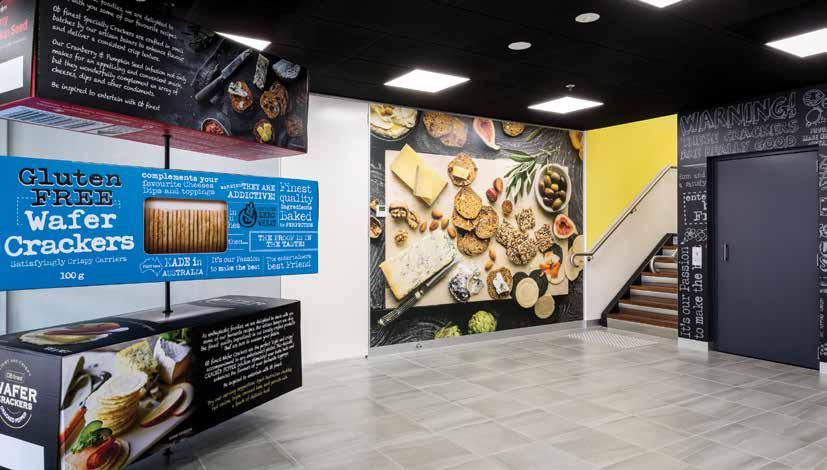
Carlton Breweries acquires Riot Wine
Riot Wine has now become part of Carlton and United Breweries’ expanding beverage portfolio.
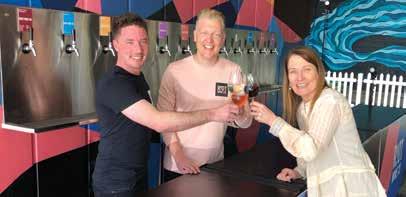
The keg and canned wine revolution led by Adelaidebased Riot Wine Co is gathering pace, with Carlton & United Breweries (CUB) acquiring the company. Riot Wine is the only company in Australia that sells wine in kegs and cans.
Its innovative and disruptive model is said to give wine lovers a superior and more sustainable product. This has seen it land in hundreds of venues and retail stores nationwide despite only launching in 2016.
“We are excited to be joining Carlton & United Breweries. Their investment, expertise and customer relationships will help us continue our rapid expansion,” said Riot co-founder and chief winemaker Tom O’Donnell.
“We launched Riot Wine to start a wine revolution in Australia by getting venues and consumers to switch from bottles to steel kegs and aluminium cans,” said Riot co-founder and general manager Joe Cook. “Wine drank this way is fresher and easier plus it’s more sustainable because one keg saves roughly 23,000 bottles from entering the environment. Our kegs prevent wine oxidising and our wine has a fun and fresh taste profile, with less sulphur, making it cleaner than traditional wine.”
Riot produces wine from South Australian grapes, supporting local producers in premium wine regions. The new investment by CUB will also see Riot’s urban cellar door upgraded in the Adelaide suburb of Brompton, creating a revamped hospitality space where wine lovers can sample and enjoy Riot products and food.
The partnership continues CUB’s investment into SA and follows the building of a new Pirate Life brewery in Port Adelaide last year. “We are committed to being the best beverage company in Australia and expanding our portfolio to meet the evolving needs of Australian drinkers,” said CUB sales vice president – Australia and NZ, Rose Scott. “Riot Wine will help us do that. It’s a truly innovative company and CUB shares its commitment to quality and sustainability. Its rapid expansion in just three years shows venues and retailers agree that it can deliver great things for consumers.
“We plan to accelerate the expansion of this growing business through our large on-tap network and more than 100 years of draught experience. The Riot Wine Co team won’t change and management will stay on to ensure the elements that have helped drive the business’ success – a focus on quality wine from grape to glass, disruption and innovation, and the quality of its people and outstanding customer relationships – remain in place.”
INCREASE EFFICENCY. REDUCE DOWNTIME.
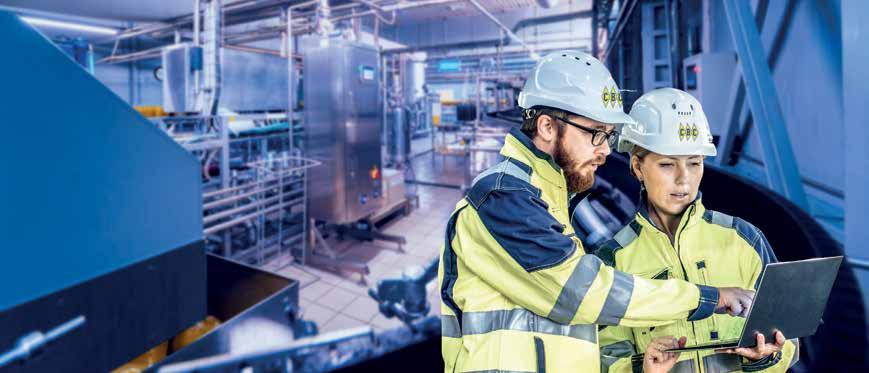
In today’s fast-paced food and beverage industry, it is critical to stay ahead of the curve. Convert your tired, old roller chain drives to highly efficient Gates Poly Chain® GT™ Carbon™ belts and set your business up for future operating success. Space-saving, weight-saving, time-saving and money-saving, Poly Chain® GT™ Carbon™ drives offer a long and reliable service life. As an authorised Gates Industrial Power Transmission distributor CBC leads the way with the industry’s best performing belt drive systems combined with specialist local support.
Contact CBC to discover how Gates belts can reduce downtime and improve productivity. Contact CBC to discover how Gates belts can reduce downtime and improve productivity.

Plant-based proteins such as lentils and beans are growing in popularity among consumers.
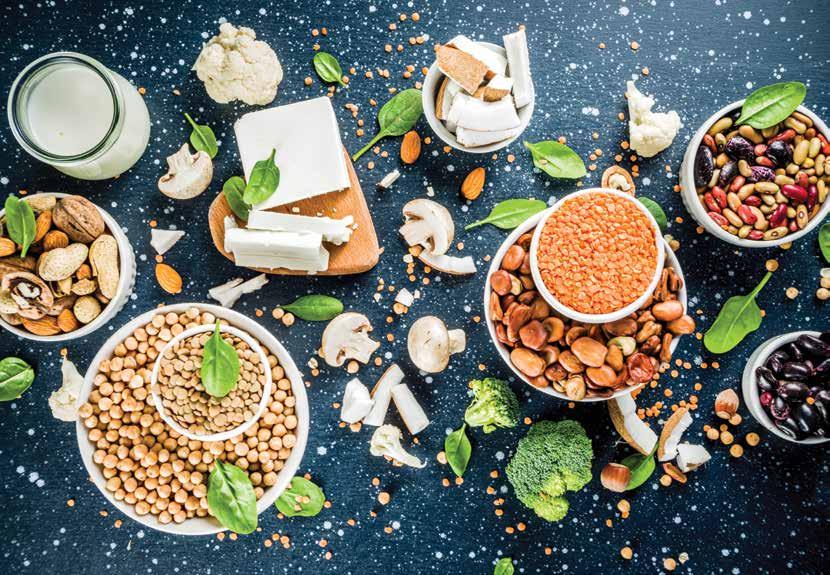
Plant-based protein worth $25 billion by 2030 P lant-based protein, foods for health and wellbeing, premium products and other emerging food trends could be worth $25 billion by 2030, new analysis by Australia’s national science agency, CSIRO predicts.
Economists in CSIRO’s strategic advisory arm, CSIRO Futures, have released an economic valuation of the full range of opportunities identified in the 2017 CSIRO Food and Agribusiness Roadmap that was released two years ago.
Senior economic advisor at CSIRO Futures, Dr Katherine Wynn, said that if Australia harnessed these opportunities, the food and agribusiness sector could successfully become a growth orientated, de-commoditised, value-adding and differentiated sector.
“Achieving this growth will depend on continued innovation and investment by all players in the food industry,” Wynn said.
“As consumer demand for healthy foods and foods with added health benefits increases, foods such as enriched yoghurt and fortified breakfast cereals are likely to claim a much larger chunk of the $25 billion pie.”
Global consumer trends for sustainable, ethical and healthy food products combined with growing demand from export markets buying into Australia’s reputation for clean and green products are driving this growth.
Wynn, whose team drew on extensive research, consultations and economic analysis, said the health and wellness, sustainable solutions, and premium segments will see higher growth (3.6 per cent per annum, in real terms) compared to the food and agribusiness industry as a whole (2.4 per cent per annum).
The goal to grow Australia’s share of emerging food markets complements the National Farmers’ Federation strategic target to reach $100 bn by 2030, with a growth rate
of approximately four per cent per annum expected in farm gate output.
Key opportunities fuelling this growth include the meat alternatives market – such as plant proteins and insect-based ingredients – as well as demand from export markets with large vegetarian populations such as India.
It was also recognised that the meat alternatives market also has the potential to reduce greenhouse gas emissions and water use.
The research also shows that consumers are more willing to pay a premium for sustainable brands, which could see greater economic as well as environmental benefits.










